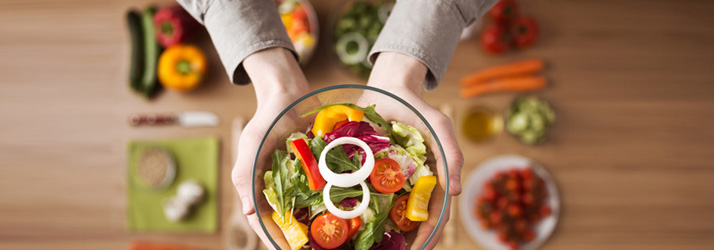Nutrition in Barrington IL

Most people searching for nutrition services in Barrington IL have trouble finding a program that works for them. After all, it's not easy to escape the sugar and carbohydrates present in many food products that populate the shelves of grocery stores. However, the notoriety that some macronutrients have is largely undeserved. In reality, carbohydrates are necessary for your continued health. The real challenge is deciphering the food labels and figuring out which carbs are right for you.
Following Good Nutrition in Barrington IL
An abundance of nourishment that can be derived from meals is found in the form of carbohydrates. As was mentioned before, a carbohydrate is a type of macro nutrient along with protein and fat. It is of vital importance to get your daily recommended amount of calorie intake through these macronutrients. Carbs are generally found in plant-based cuisine. However, this naturally occurring nutrient is now overused in a number of refined foods that overuse starches and sugars. Sugar is the most natural form of carbohydrate available. It arises from a unique assortment of the molecules oxygen, hydrogen, and carbon. The difference in the arrangement of these molecules results in the multiple forms carbohydrates can come in. The organic sources of carbohydrates include:
- Whole Grains
- Vegetables
- Fruits
- Nuts
- Grains
Three Kinds of Carbohydrates:
- Fiber: This kind of carb is created through the chaining of multiple molecules of sugars. It is important to note that are two types of fiber: soluble and insoluble. Fiber can be found in healthy foods such as lentils, almonds, peas and broccoli, and much more.
- Sugars: There are two general groups of sugars: organic and added. Organic sugars are found in a variety of fruit while added sugars can be found in pastries, soda, and sweets. The key difference between the two sugars lies in the natural sugars; tendency to also pack key nutrients like fructose. On the other hand, added sugar provides almost no nutritional value besides pure energy. The human body is designed to run on organic sugars and has adapted to deriving this energy from a number of healthy foods such as carrots, bananas, and pineapples.
- Starch: This brand of carbs is also a result of the chaining together of sugar molecules. Good sources of starch that are natural include vegetables and grains.
Glycemic Index
Two more terms to take note of are Net Carbs and Glycemic Index. It is not common knowledge that the FDA is not responsible for the types of descriptions found on many food labels. Claims such as "low fat" or "healthy carbs" go unregulated since the terms are entirely subjective. What one company defines as healthy carbs could be really some type of Frankenstein high fructose corn syrup.
The idea of a glycemic index is a popularized concept that most individuals in Barrington IL may have caught wind of but don't fully understand. A glycemic index is a method of categorizing multiple types of cuisine that contain carbs and the extent to which they can raise an individual's blood sugar. Common sources of foods that score excel in the glycemic index formula are:
- Fruits
- Vegetables
- Whole Grains
When one uses the glycemic index in formulating their weight-loss plan, one will generally find that they will be eating less fatty foods like white bread and rice. However, don't take this as a condemnation of these foods. Almost everything is good in moderation.
A Healthy Diet
A healthy diet necessitates an assortment of nutrients that work together to bring you vitality, however, this implies you are picking the proper foods, to begin with. A few things to look for in healthy foods are:
- Legumes: This family of food is as diverse as it is delicious. Legumes encompass a wide variety of beans and are an excellent food that packs a punch on a budget. This mighty food group provides your body with the building blocks for a healthily functioning brain and skeletal system. Some scientists believe the key to cardiac health is choosing legumes over red meat!
- Fiber Rich: Be sure to choose fiber-rich foods such as vegetables and fruits. A good rule of thumb is to opt for fresh varieties as opposed to those in cans. This is because manufacturers often opt to use preservatives to keep those vegetables and fruits edible. Fiber-rich foods are essential in allowing you to maintain a proper circulatory system.
- Low-fat Dairy: Dairy is an amazing source of nutrients. Apart from offering everything from calcium to vitamins, it also comes in a variety of fat options that allow it to meet the needs of just about any healthy diet. Consuming low-fat dairy is linked to a lower risk of heart attacks and related circulatory system issues.
- Whole Grains: There are many kinds of grains. However, they can easily be organized into two distinct groups: whole and refined. Every kind of grain has carbs, minerals, and vitamins. It is considered a best practice to opt for whole grains because of their organic origin. The fact is, that natural grains are not manufactured like refined grains. In addition, research shows that whole grains are able to hold more of the important nutrients (such as antioxidants) as opposed to their refined counterparts.
- Added Sugars…NEVER! The facts plainly show that there is no valid reason for added sugars in your diet. While they may offer a sweet escape from time to time, added sugars over time can lead to an unhealthy weight, tooth cavities, cardiac issues, and more! It's best to stay far away from this deceptively sweet menace!
It can be confusing to navigate the complex relationship between food and nutrition. However, a good start is simply to watch the kinds of sugars, grains, and fat that are in your food and act accordingly. The health experts at Van Ness Chiropractic in Barrington IL are always here to help you reach your goals if you need assistance.
OFFICE HOURS
Monday
7:30am - 6:00pm
Tuesday
9:00am - 6:00pm
Wednesday
7:30am - 6:00pm
Thursday
7:30am - 10:30am
Friday
7:30am - 12:00pm
Saturday & Sunday
Closed
Van Ness Chiropractic
215 S Northwest Hwy #102A
Barrington, IL 60010



